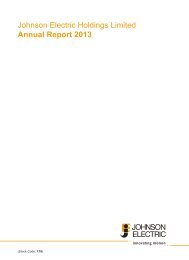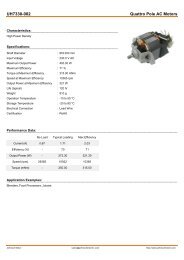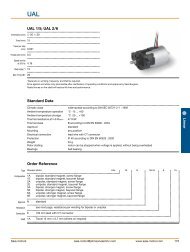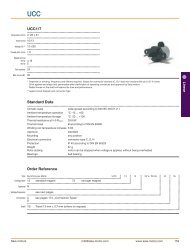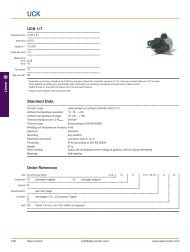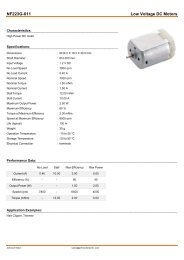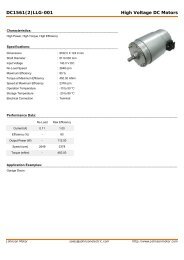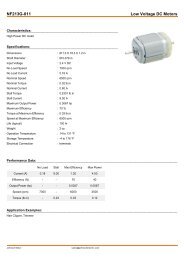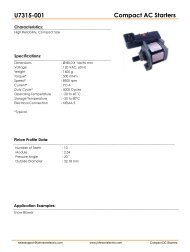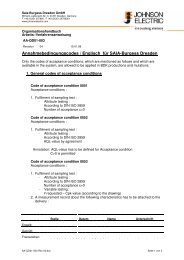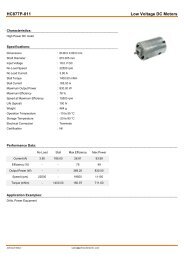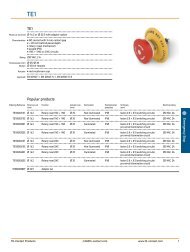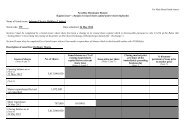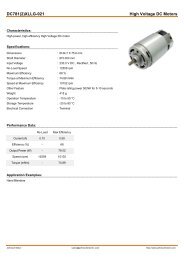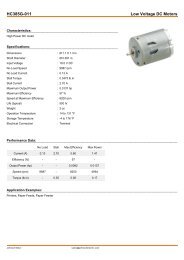Create successful ePaper yourself
Turn your PDF publications into a flip-book with our unique Google optimized e-Paper software.
NOTES TO THE ACCOUNTS<br />
44. Effect of adopting new HKFRS (Cont’d)<br />
The adoption of revised HKAS 17 has resulted in a change in the accounting policy relating to the reclassification<br />
of leasehold land and land use rights from properties, plant and equipment to operating leases. The up-front<br />
prepayments made for the leasehold land and land use rights are expensed in the profit and loss account on a<br />
straight-line basis over the period of the lease or where there is impairment, the impairment is expensed in the<br />
profit and loss account. In prior years, the leasehold land and land use rights was accounted for at cost less<br />
accumulated depreciation and accumulated impairment.<br />
The adoption of HKASs 32 and 39 has resulted in a change in the accounting policy relating to the classification of<br />
other financial assets at fair value through profit or loss and available-for-sale financial assets.<br />
The adoption of revised HKAS 40 has resulted in a change in the accounting policy of which the changes in fair<br />
values are recorded in the profit and loss account as part of other gains, net. In prior years, the increases in fair<br />
value were credited to the investment properties revaluation reserve. Decreases in fair value were first set off<br />
against increases on earlier valuations on a portfolio basis and thereafter expensed in the profit and loss account.<br />
The adoption of revised HKAS-Int 21 has resulted in a change in the accounting policy relating to the measurement<br />
of deferred tax liabilities arising from the revaluation of investment properties. Such deferred tax liabilities are<br />
measured on the basis of tax consequences that would follow from recovery of the carrying amount of that asset<br />
through use. In prior years, the carrying amount of that asset was expected to be recovered through sale.<br />
The adoption of HKFRS 2 has resulted in a change in the accounting policy for share-based payments. Until 31st<br />
March 2005, the provision of share options to employees did not result in an expense in the profit and loss account.<br />
Effective from 1st April 2005, the Group expenses the cost of share options in the profit and loss account. As a<br />
transitional provision, the cost of share options granted after 7th November 2002 which had not yet vested on 1st<br />
April 2005 was expensed retrospectively in the profit and loss account of the respective periods.<br />
The early adoption of amendment to HKAS 19 provides an option of recognising actuarial gains and losses in full<br />
in the year in which they occur, outside profit and loss account, in reserves. The Group has elected to take the<br />
option to recognise all actuarial gains and losses, including those actuarial gains and losses previously included as<br />
part of the transitional unrecognised liabilities on initial adoption of SSAP 34, Employee benefits. In prior years,<br />
cumulative unrecognised net actuarial gains and losses, to the extent of the amount in excess of 10% of the greater<br />
of the present value of the plan obligations and the fair value of plan assets, were recognised in the profit and loss<br />
account over the average remaining service lives of employees. This change in accounting policy has been applied<br />
restrospectively.<br />
The adoption of HKFRS 3, HKAS 36 and HKAS 38 results in a change in the accounting policy for goodwill. Until<br />
31st March 2005, goodwill was:<br />
– Amortised on a straight line basis over a period ranging from 5 to 20 years; and<br />
– Assessed for an indication of impairment at each balance sheet date.<br />
110 <strong>Johnson</strong> <strong>Electric</strong> Holdings Limited



